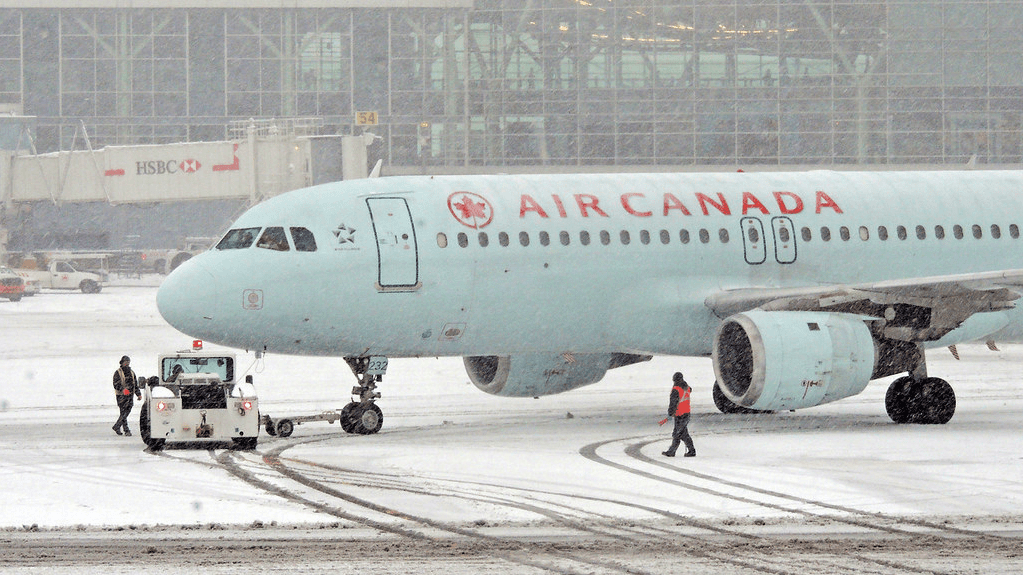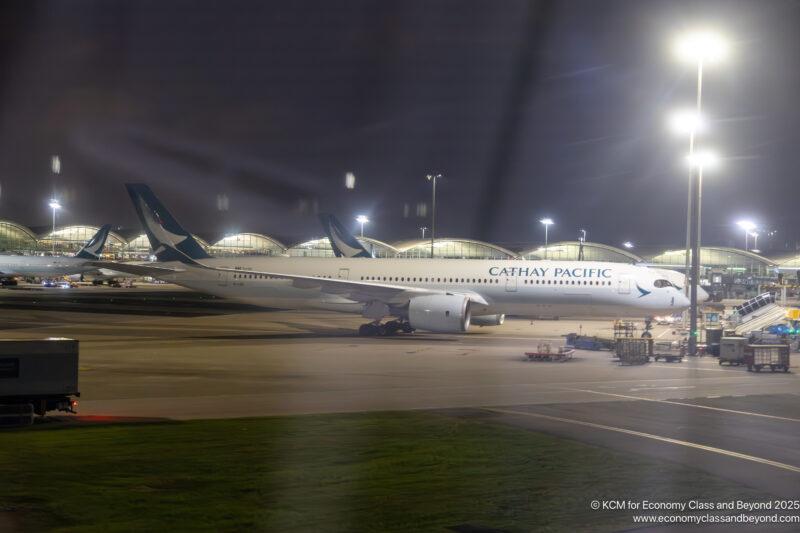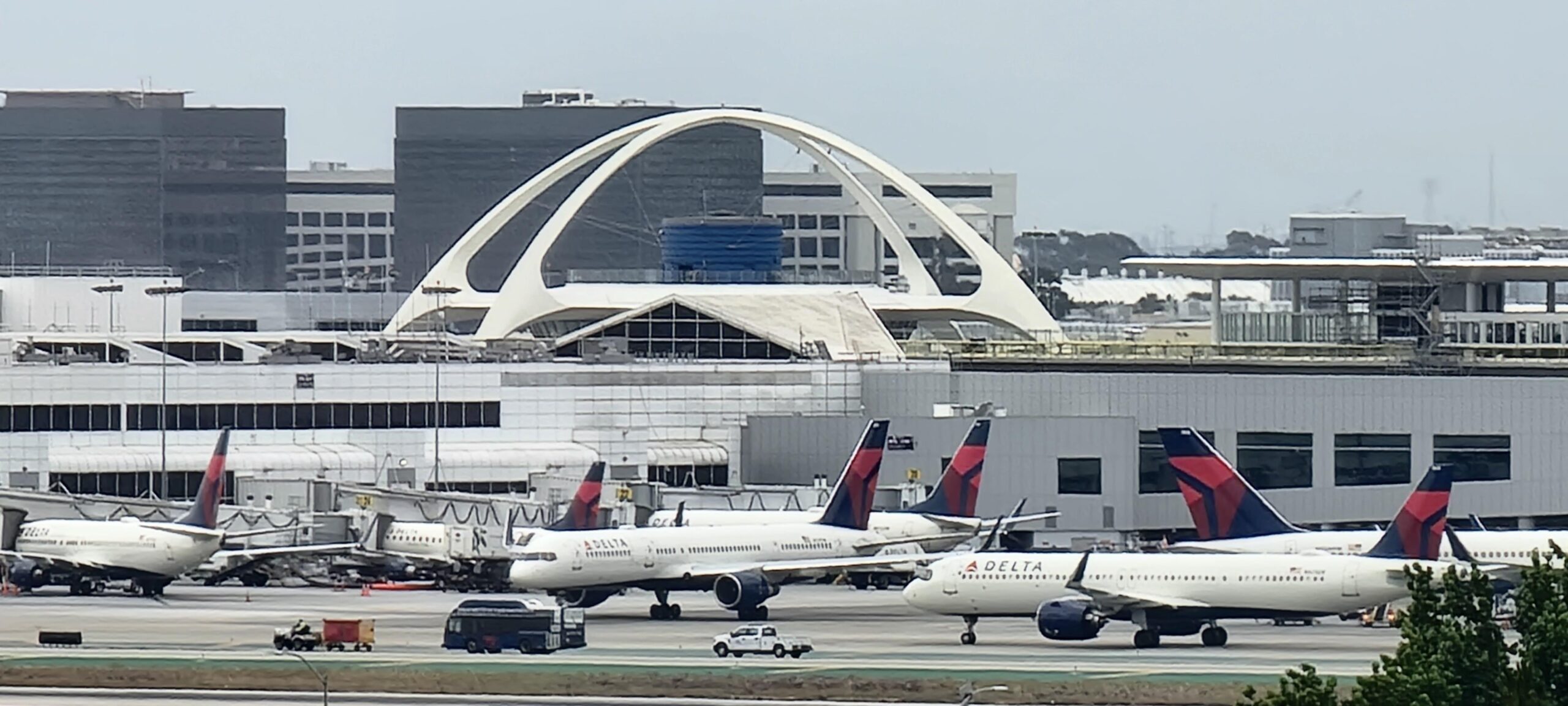Brazilian Airlines Azul & Gol To Merge Pending Antitrust Review
Azul and Abra, the controlling shareholder of Gol, signed an agreement on Wednesday that would see these two airlines merge while keeping both brands alive. The combined Azul-Gol entity would control 62% of the domestic market and require clearance from the Brazilian antitrust authority. Note […]
Azul and Abra, the controlling shareholder of Gol, signed an agreement on Wednesday that would see these two airlines merge while keeping both brands alive.

The combined Azul-Gol entity would control 62% of the domestic market and require clearance from the Brazilian antitrust authority.
Note that the signed agreement between Azul and Abra is nonbinding. Azul and Gol have already had a codeshare agreement in place since May 2024.
Azul and Gol would keep separate operations and operations certificates if the merger proceeds. Gol is still under the Chapter 11 restructuring plan, which it plans to complete by May.

Azul began flying in 2008 and was founded by David Neeleman. Neeleman has founded several other successful airlines, including Morris Air, WestJet, and JetBlue, and is currently the CEO of US carrier Breeze.
Azul operates a fleet of Embraer and Airbus planes, and its Conecta brand also has Cessnas and ATRs. Gol’s entire fleet is Boeing 737-based. Azul has three long-haul destinations: Lisbon, Orlando, and Fort Lauderdale. It has partnered with airlines such as United, Copa, and TAP.
Gol was founded in 2001 and later bought the Varig brand (the Brazilian Star Alliance carrier that went bankrupt). It has partnerships with many airlines such as American, Air France & KLM, Emirates, Qatar Airways, etc.
Abra is also the majority investor in Colombia-based Avianca and Spanish Wamos Air.

Azul’s Press Release:
Azul and Abra sign non-binding MoU with intent to combine their businesses in Brazil
Customers of Azul and Gol, will have access to more destinations, routes, products and services. The companies have almost 90% complementary routes, will maintain their independent operating certificates and brands
SÃO PAULO, Jan. 15, 2025 /PRNewswire/ — Azul and Abra, the majority investor of Gol and Avianca, have announced today they have signed a non-binding Memorandum of Understanding (MoU) with the intent to combine their businesses in Brazil. The intended structure, the result of a combination of Azul and Gol, will position Brazil at an increased level of global strength in a highly globalized sector. The purpose of the business combination is to promote growth in the Brazilian aviation industry, through more destinations, routes, connectivity and services to consumers, with an increase in the supply of domestic and international flights. The two companies have approximately 90% complementary and non-overlapping routes. Although the MoU provides for the unification of strategy, the airlines are expected to keep their operating certificates, and therefore their brands and operations, separate.
The MoU, which includes governance and capital structure agreements, formalizes Azul and Abra’s intention to move forward with the next steps in a combination of their businesses and marks the beginning of the process for regulatory approvals. The intention to materialize synergies between the airline networks and the use of the Azul and Gol´s fleets result in benefits for the consumer, such as more options and products; and for Brazil, with the increase of new destinations served by Brazilian aviation.
“Azul was created with the aim of expanding the Brazilian airline market, seeking to increase Brazilians’ access to air travel, regardless of where they are in the country, through expanded connectivity. This combination of forces would provide the opportunity to strengthen the sector, increasing the number of flights on offer, reaching more than 200 cities served in Brazil and the ability to compete in a highly globalized sector,” says Azul’s CEO, John Rodgerson. “Increased connectivity and job creation are some of the many positive results expected from this agreement, while also delivering high quality service and the search for the best value for money for the consumer,” he adds.
The proposed combination represents a major development for the national aviation industry and all the economic activity facilitated by a mode of transport of such importance for a continental country. With more than 220 million inhabitants and around 110 million air journeys a year, the Brazilian market is less developed than that of several neighboring countries and has enormous potential for expansion. The MoU announced today seeks to develop the industry in an accelerated manner.
The parties have agreed to a business principle that any combination will result in net leverage of the combined entity that will be at least comparable to the net leverage of Gol at the time of the Transaction and after consummation of its plan of reorganization.
The closing of the transaction is subject to Abra and Azul agreeing on economic terms of the transaction, the satisfactory completion of due diligence, entering into definitive agreements, obtaining corporate and regulatory approvals (including from the Brazilian antitrust authorities), satisfaction of customary closing conditions the consummation of Gol’s Chapter 11 plan of reorganization and receipt by Abra of consideration thereunder.
Conclusion
I don’t think combining these two airlines and creating what would be essentially a duopoly for the Brazilian domestic market, Azul-Gol and LATAM, would do any good for the country’s airfares.
I have been traveling to Brazil several times a year for 20+ years and will again be back next week. I have seen several airlines and partnerships come and go during this time.
Gol used to be a partner with American Airlines, and then it wasn’t, but it is again. It has never been part of any alliance but has frequent flier and interline agreements with many airlines flying to Brazil.
TAM was part of Star Alliance, then Oneworld, merged with LAN to create LATAM, which later exited the alliance and is now a partner with Delta
Azul was a JetBlue-style LCC that has become a full-service carrier. It has widebody aircraft for long-haul flying and frequent flier partnerships.
Then there was Oceanair, which became Avianca Brasil and ended up folding.
The most famous Brazilian airline was Varig. I flew a few times with it in the early 2000s, and if you buy a Gol flight in the US, you can see the name VRG on your credit card statement.
I fly with all these three airlines (Azul, Gol, and LATAM), and there is hardly a difference between them.
What's Your Reaction?




































